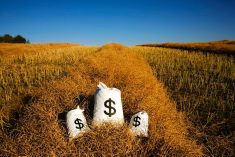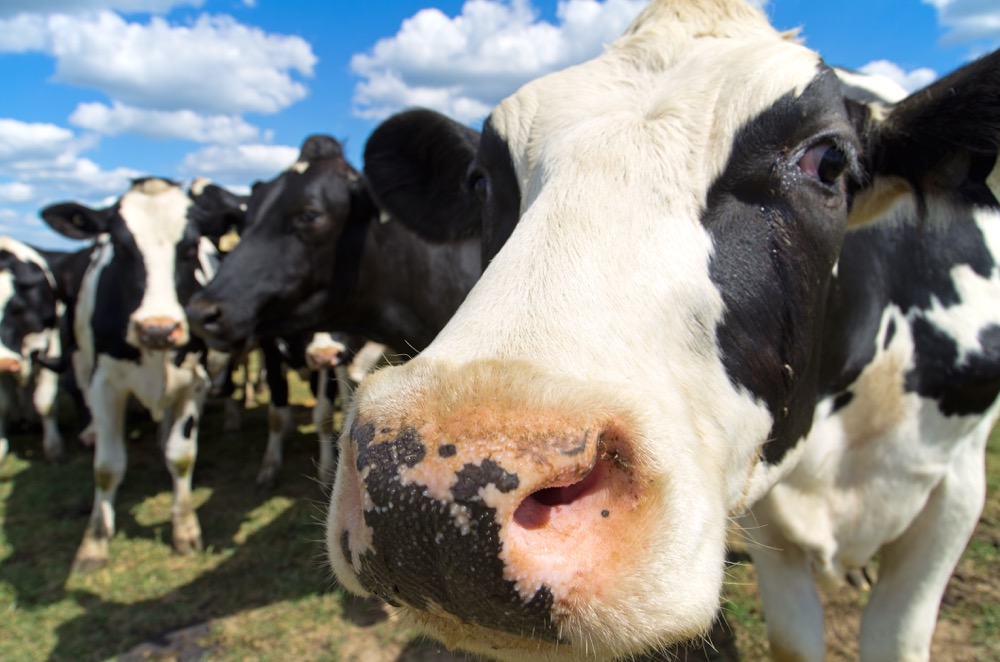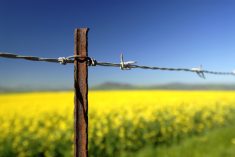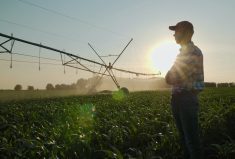Each day we are bombarded with negativity — often regarding food, fuel and housing, those core foundational building blocks in our hierarchy of needs.
Without them we start to lose our sense of belonging and of control in our lives and begin to fear for our future. Added to inflation and declining markets is the constant messaging about the impacts of climate change, which potentially cast a shadow on fundamental food production.
Splitting the truth from the drama, the grain from the chaff (so to speak), takes serious research that reaches far beyond the dynamics of the current day.
Read Also

From MasterChef to ‘Barndominium’: Rootstock Ranch fires up the grill
Marianne Smeaton, from Charlie Lake, B.C., is opening an event centre with a menu featuring her homegrown Wagyu beef after appearing on MasterChef Canada’s finale.
To navigate, we must know our foe and our good fortune.
Inflation can simply be described as a reduction in the purchasing power of money. For Canadians, the inflation rate in May was 7.7 per cent, which has been slightly offset by a 3.3 per cent increase in wages. As in Canada, global inflation is based on three inflationary principles: increased cost of production; lack of available goods; and an increase in wages. Global inflation rates vary from 2.2 per cent in China to 1,190 per cent in Venezuela.
- More with Brenda Schoepp: When we put values ahead of winning, good things happen
Canadian food inflation during the same period rose to 9.7 per cent. However, food inflation is not equal and there are higher costs in specific categories, such as meat and pasta.
In other areas of the world, food inflation has been catastrophic.
In Sri Lanka, food prices rose by 57 per cent in April alone. The Sri Lankan government has granted all public sector workers a four-day work week so they can go home and grow food on Friday — even though most of them don’t have soil or money for seeds. It’s a desperate attempt to sooth unrest in that country.
Climate has an impact, as most continents are experiencing areas of drought. It is this widespread challenge that makes these times unprecedented. Yet climate too is cyclical in nature.
It is our globalized system — our dependence on food production outside our borders and others’ dependence on our food exports — that has shifted access to food and replaced our political willingness to feed ourselves. This contributes to food inflation because foods are sourced outside of local areas in systems dependent on crippled infrastructures.
Do inflation and higher costs point to a recession?
Depending on where you are in the world, predictions range from a mild setback to a catastrophic depression.
The definition of a recession, according to Oxford, is a “period of temporary economic decline in which a country’s Gross Domestic Product (total monetary value of all goods and services produced and sold) declines for two consecutive quarters.”
Our economy has been growing, so that does not totally fit the definition.
Financial markets are also a concern and at the time of writing, the S&P 500 (which tracks the largest companies listed on American stock exchanges) was down just over 20 per cent and close to a 52-week low, which is causing investor anxiety.
But as I go through the list of inflation levels and declining GDP country by country, it is clear that those suffering the highest levels of food inflation and economic retraction are also those embroiled in conflict or plagued by severe weather and political instability.
What is happening elsewhere does not always reflect the Canadian dynamic. Recessions don’t automatically follow in the wake of bear markets. Economic matters can be like Naomi Klein’s politics. She wrote, Politics hates a vacuum. If it isn’t filled with hope, someone will fill it with fear.
That is what is happening now — fear-driven reactions, fear-driven markets and fear-based politics.
As an advanced civilization with both technology and natural resources on our side, this is Canada’s time to lead the world in modelling food systems leadership. In my studies on global food systems, it was repeatedly stated by research participants that agriculture was the avenue to educate governments on food as a solution to solve economic issues.
It is agriculture that is the irreplaceable base of a civilization — and it is agriculture that must step up to the challenge.
Our good fortune in Canada gives us a right and a responsibility to bring stability to a fatigued domestic and global population. Let us start by filling plates with food — and hearts with hope.
















